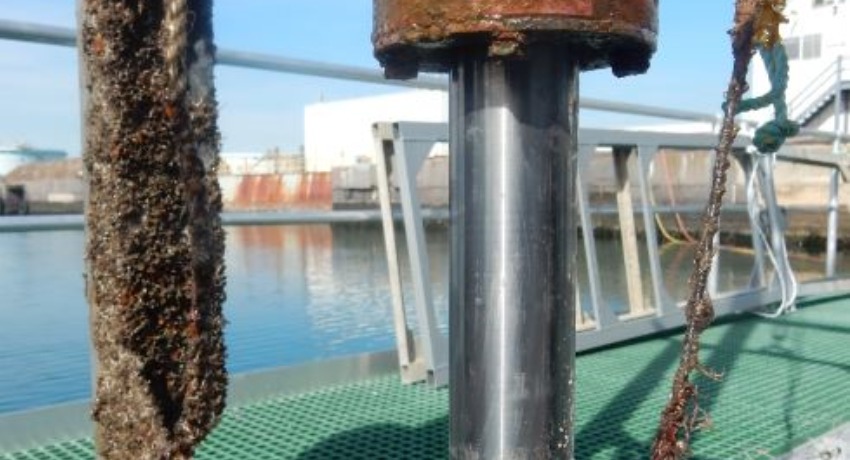The Defence Materials Technology Centre (DMTC), in partnership with Swinburne University of Technology, MacTaggart Scott Australia, Defence Science and Technology (DST) Group and United Surface Technologies, has developed new corrosion-resistant coating that halved the build-up of algae and barnacles on ship hydraulic components.
To continue reading the rest of this article, please log in.
Create free account to get unlimited news articles and more!
A new corrosion-resistant coating that cut the build-up of algae and barnacles on ship hydraulic components in half is now being trialled on HMAS Canberra. Researchers from Swinburne University of Technology are collaborating with experts from the DMTC, MacTaggart Scott Australia, United Surface Technologies and DST Group to advance the new technology.
The scientists and industry experts came together to tackle the issue of corrosion and bio-fouling, where tiny marine plants and animals build up on the surface of things that are constantly in the water, such as ship hulls, anchors and piers.
This build-up can be incredibly costly: it can transport pest species to new areas, cause corrosion, damage critical mechanical components and increase the drag on a ship, causing it to burn more fuel as it sails. These combine to impose a massive expense on the shipping industry worldwide.
Dr Andrew Ang of Swinburne, one of the lead scientists on the team, said, "Many scientists around the world are looking for new ways to combat bio-fouling and corrosion."
Dr Ang won the 2018 Fresh Science competition in Victoria for his work.
The treatment is likely to be too expensive to be used on entire ship hulls, but it could make a big difference for critically important machinery on a ship that helps provide propulsion or heavy lifting capabilities. The team tested the protective coating on more than 100 test samples, immersing them in seawater at three field sites around Australia from 2015 to 2017.
The joint team is trialling the treatment (a single layer of carbide-based coating) on parts that require very smooth surfaces. Because these are exposed to harsh operating conditions, they rapidly degrade from bio-fouling and corrosion.
Dr Richard Piola from DST Group said the new surface coatings could make a huge difference to the operational availability of Navy ships, and significantly reduce the cost of maintenance and repairs.
"If the coating can double the length of time a ship can be at sea or available to be deployed – before it needs to be docked and cleaned – it could save costs and also increase operational readiness for the Defence Force," Piola explained.
Dr Mark Hodge, CEO of DMTC, said, "DMTC has not only brought these partners together, but we’ve brought a resolute focus on the benefit in terms of Defence capability and in terms of Australian supply chain development. That’s why we are delighted to have the opportunity to work with DST Group and the Navy to trial this technology on-board HMAS Canberra.”
The Canberra and her sister ship HMAS Adelaide are providing the Australian Defence Force with one of the most capable and sophisticated air-land-sea deployment systems in the world.
Fresh Science is a national competition run by Science in Public, which helps early-career researchers find and share their stories of discovery. Fresh Science Victoria is supported by the Royal Society of Victoria, La Trobe University, Monash University, The University of Melbourne, Deakin University, RMIT University, CSIRO and Swinburne University of Technology.
DMTC works collaboratively with many successful and innovative Australian industry, research and government agencies to advance technologies in priority areas. Our focus is on delivering enhanced defence and national security capabilities, and strengthening Australian industrial capacity.

 Login
Login







